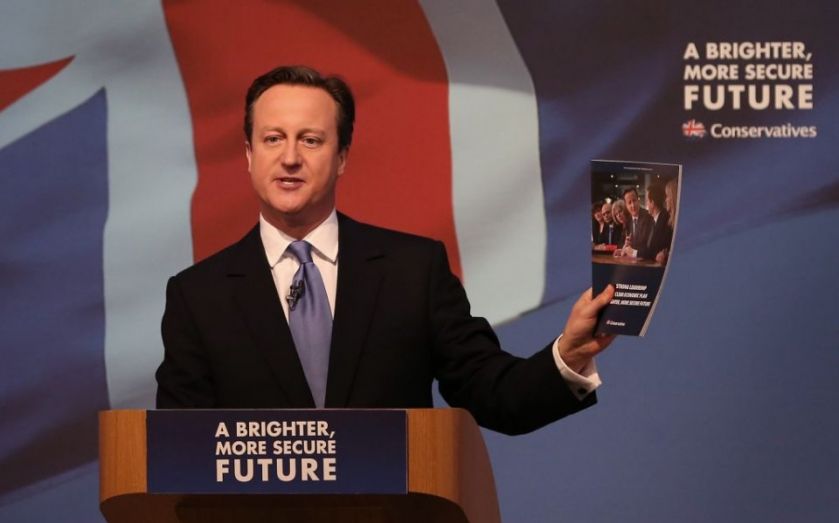Conservative manifesto: Extending right-to-buy will transform the prospects of low income families

The centrepiece of the Conservative Party manifesto, unveiled yesterday, was a significant expansion of the right-to-buy scheme. Giving families the ability to own their own home is a wonderful thing, and extending the scheme to housing associations, as the Conservatives propose, will certainly do that. The broad economic benefits of home ownership are well established, and right-to-buy entails a massive redistribution of wealth from the state to low income families. This makes the sheer venom of yesterday’s criticism of the proposal all the more bewildering.
It is worth examining the various elements of the Conservative plan in detail. First, tenants who have lived in housing association properties for three years or more will be given the right to buy their home at a large discount. There are approximately 2.5m housing association tenants, and of those around 1.3m have lived in the property for three years or longer. Second, councils will be required to sell some of their more expensive and currently vacant homes, working out to about 15,000 houses sold a year, raising about £4.5bn. About half of that money will then be used to build new council houses to replace those which have been sold. The rest will be split between paying for the discounts for housing association tenants to buy their homes and a fund to help get brownfield sites prepared for new houses.
In effect, extending right-to-buy creates something from nothing. In the case of the vacant council properties, assets which are owned by the state will be transferred to families wanting to make use of them. Tenants who wanted to buy their homes but couldn’t afford to, meanwhile, will now be able to do so because of the discount on offer. Many low income families will become home owners – with all the benefits that entails. Increased home ownership is associated with safer and more stable communities. Families, no longer dependent on the state for their homes, are able to build proper roots in their neighbourhoods, and invest and think about the long term.
For such an apparently positive policy, the criticism has been intense. The key argument seems to be that extending right-to-buy would reduce the supply of housing. This seems terribly confused. People’s homes don’t just disappear because families own them instead of the government. Yes, we all want to build more houses, but letting people buy the homes they already live in doesn’t reduce the number of properties in existence.
Furthermore, housing associations will receive the full market price for the houses which are sold. This cash doesn’t just vanish either. It is perfectly reasonable to expect that housing associations will use this new income stream to build new houses to be rented socially. The result? The people who want to own their own homes can do so at the same time as new properties are being built.
Of course, there will be a time lag between right-to-buy sales and the construction of new homes. However, if councils don’t spend the funds they receive on new construction within three years, they will be required to return the money with interest. This is certainly a strong incentive to build. It seems bizarre for those who profess to care deeply about poverty and inequality to criticise a policy which directly capitalises poorer households. right-to-buy boosts the financial security and opportunities of low income families, and for that reason alone it should be welcomed.
The rest of the Conservative manifesto was a mix of positives and negatives. First, the party proposed a new law to ensure that people working on the minimum wage for 30 hours a week will not have to pay income tax. This is a laudable ambition, and will ensure that increases in the personal allowance undertaken in this Parliament will not be eroded in the future. This does give the Low Pay Commission much more influence and doesn’t deal with National Insurance contributions, but it will certainly boost work incentives.
The second key proposal outlined was an increase in the amount of taxpayer-funded childcare to an average of 30 hours per week. Childcare costs in the UK are certainly very high by international standards and this proposal is effectively a subsidy for second earners in a family. However, more supply-side measures to deal with the reasons why childcare costs have increased would have been desirable.
Nevertheless, the Conservatives have scored a clear policy win with right-to-buy. Britain does need to boost its housing supply, and liberalising planning laws is key to doing that. But by extending right-to-buy, a future government could do that rare thing of increasing both freedom and security.